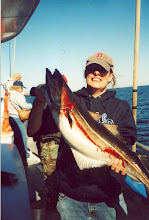
In this tribute to the Flying Fish, I thought I would share some fun facts with you: Flying fish can be seen jumping out of warm ocean waters worldwide. Their streamlined torpedo shape helps them gather enough underwater speed to break the surface, and their large, wing-like pectoral fins get them airborne. Flying Fish use this remarkable gliding ability to escape predators, of which they have many. Their pursuers include mackerel, tuna, swordfish, marlin, and other larger fish. For their sustenance, flying fish feed on a variety of foods, including plankton.There are about 40 known species of flying fish. (Here you will see their size relative to a tea cup)

Beyond their useful pectoral fins, all have unevenly forked tails, with the lower lobe longer than the upper lobe. Many species have enlarged pelvic fins as well and are known as four-winged flying fish.The process of taking flight, or gliding, begins by gaining great velocity underwater, about 37 miles (60 kilometers) per hour. Angling upward, the four-winged flying fish breaks the surface and begins to taxi by rapidly beating its tail while it is still beneath the surface. It then takes to the air, sometimes reaching heights over 4 feet (1.2 meters) and gliding long distances, up to 655 feet (200 meters). Once it nears the surface again, it can flap its tail and taxi without fully returning to the water. Capable of continuing its flight in such a manner, flying fish have been recorded stretching out their flights with consecutive glides spanning distances up to 1,312 feet (400 meters). Flying fish are attracted to light, like a number of sea creatures, and fishermen take advantage of this with substantial results. Canoes, filled with enough water to sustain fish, but not enough to allow them to propel themselves out, are affixed with a luring light at night to capture flying fish by the dozens. There is currently no protection status on these animals. (
Thank you National Geographic)
(After all we have seen and learned, Ginger and I have decided to start an International Society for the Protection of Flying Fish)

















































